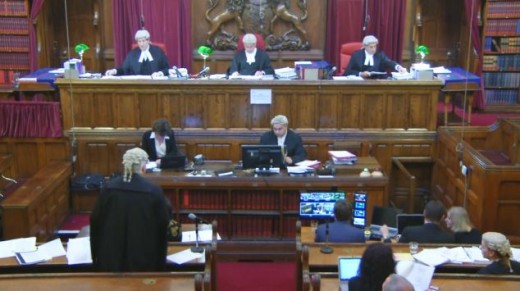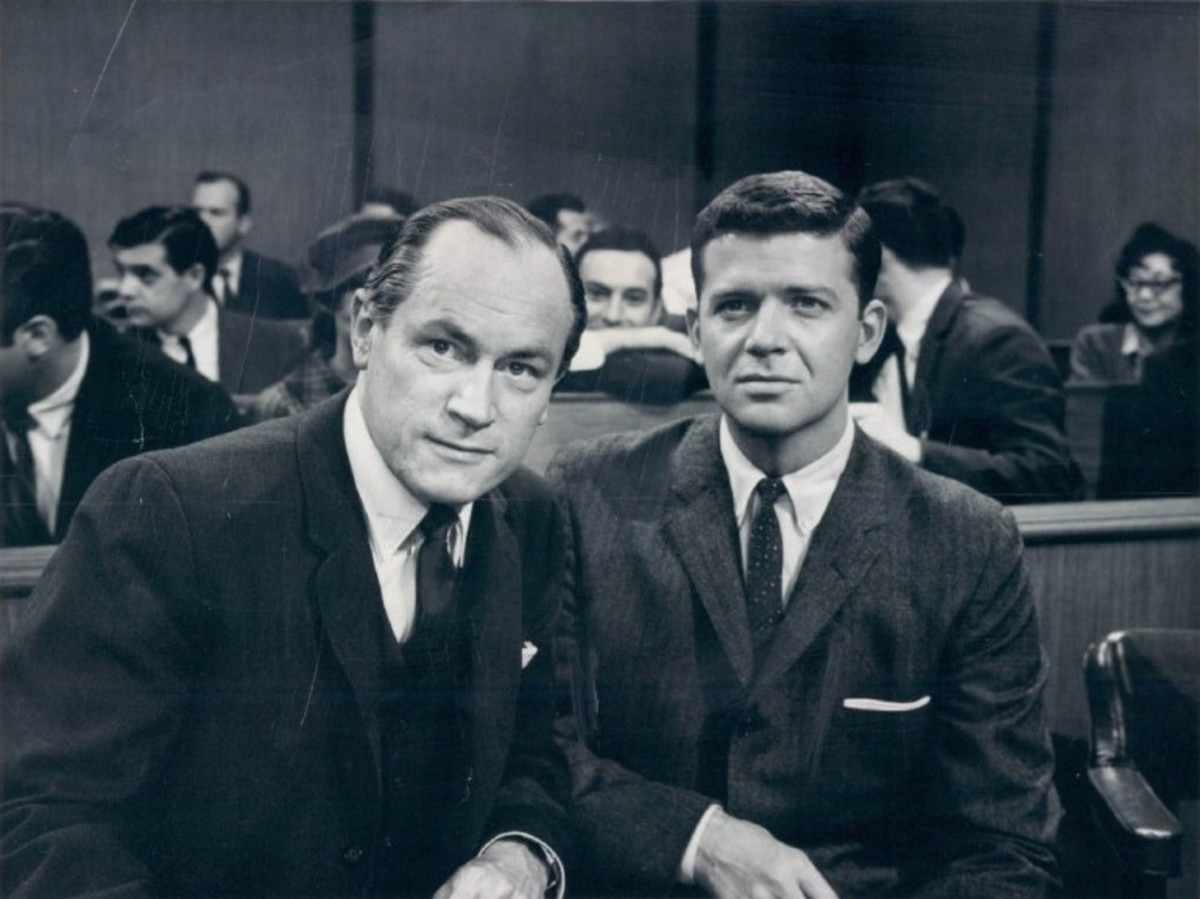Legal Recourse vs Combat

have we passed the stage of internal armed conflict?
We’ve come a long way since the Dark Ages – sort of.
Nowadays, we don’t need an armed warrior class to protect us from the ravages of bandits and Robber Barons. This is because the Robber Barons got fed up with having to defend their privileges and estates on a day to day basis and initiated, using the Magna Carta as a starting point, a system of law to protect their ill-gotten gains.
As the system of law took hold, there was less and less volatility in property exchanges and fewer physically fought boundary disputes. Gradually, a centralised authority emerged to back up ancient “legal” claims over estates and privileges, thus protecting the descendants of Robber Barons from the inconvenience and expense of maintaining their own private armies. Over time, volatile boundaries settled down and became “enshrined in law”.
This was particularly useful for Robber Barons and their descendants as they faced a new threat - not from other Robber Barons but from an increasingly infuriated Peasantry. Having chased the Peasants off the land during the “Enclosures” (a series of Acts of Parliament between 1604 and 1914 that empowered the privatisation of open fields and common land) and forced them into crowded and filthy cities to become factory (and military) fodder, the Robber Barons found parties of the more uppity Peasants (most notably The Diggers) trying to return to the land via “squatting”. These had to be resisted using “legal” grounds.
The real beauty of a centralised legal system, complete with enforcement, is that the Robber Barons themselves can avoid, for the most part, the taxes associated with maintaining this system. Completely counter-intuitively, the costs eventually fall to the Peasants themselves, through enforced taxation from which, without the aid of expensive accountancy specialists, they cannot escape.
In effect, we the Peasants have ended up paying for a legal and enforcement system directed more or less specifically against ourselves.
How can this be changed?
Step one, in any situation, is to recognise the problem. Having seen it scoped roughly above, any readers finding themselves in broad agreement are invited to read on for some hopefully constructive explanations and suggestions.

Lawyers – the new Warrior Class
Losing the need for armed combat
For all its flaws, a centralised legal/enforcement system can be seen as a more civilised approach than duels and massed armed combat. Most of us have been blessed with little need for weapons training. On a micro-cosmic level, adequately trained and resourced centralised legal/enforcement can be seen, to some extent, to be working. Most would agree that “Call the police” or “You’ll be hearing from my Lawyer” are far more civilised battle cries than “Kill”, especially if one of the parties is not combat-trained.
Cost
The real disadvantage to centralised law/enforcement is the totally inappropriate and restrictive matter of cost. People of equal economic stature may have a chance of finding balance and justice, even in the current adversarial context. But individuals of poor or moderate economic stature haven’t a hope in high water when dealing with individuals and corporations with infinite legal funds. This is most viscerally evident when a relatively poor litigant sits with his/her lawyer while the opposing rich or corporate litigant sits with rows of specialist lawyers in sharp suits. Even where guilt of the wealthier party is shown to be self-evident, legal processes can be dragged out for years on technicalities and cost hundreds of thousands of pounds. Most Peasants cannot cashflow such extravagances.
Closed Shop
In the current system, a person needs considerable financial resources to become a lawyer. Applicants are expected to work and study long hours with little or no remuneration until they “qualify”. This of course is actually a screening system. The bulk of entrants come from homes with private means.
The “Bar” / The Two Tier system
The “Bar” originally referred to the physical barrier separating the gallery of a courtroom from the place where lawyers sit: The “bar exam” arises from this to “test” individuals’ suitability to be licensed to practice law.
The clumsy British legal system, already rife with privilege and ridiculous pageantry, is further encumbered with the absurd distinction between “barristers” and “solicitors”. Only the former may appear and perform in front of a judge. The latter are stuck with finding clients and then approaching the former to ask them to represent the case. And of course it takes a lot more private means for a mere solicitor to make it into the esteemed ranks of the barristers.
A personal experience of this cock-eyed system at work included many hours of explanation and submission of documents to a perfectly nice solicitor. But on the day in court, a pompous be-wigged school boy showed up five minutes before show time to be briefed by the solicitor. An element of the case was the presence of witnesses willing to plead in defence, but the be-wigged barrister insisted on not calling the witnesses because he “knew the judge and knew that he would be irritated”!!
The case was lost. It was later won on appeal with the introduction of the witnesses.
Adversarial
Nor does basing the entire system primarily on single party “blame” help in the cause of finding fairness and justice.

Combatting the Legal Monopoly
Flooding the market
In a “free market”, if something is over-priced the competition is supposed to set in, flood the market, and drag the price down. Retail law is not, of course, a free market. It is a monopoly tightly controlled by privilege and price-fixing.
If the primary source of lawyers and judges is privately educated school boys with access to private means, quite apart from the fact that their privately inculcated ideas and sensibilities pervade the views of their profession, it also means that “the product” will always be in short supply. The very exclusivity of the supply side creates a “seller’s market” when it comes to flogging their services. There simply aren’t enough lawyers and judges to deal with all the problem areas out there, and lawyers are free to charge obscenely inflated fees.
The answer would be to “flood the market” with fully qualified lawyers such that competition and “free market forces” would drive costs down.
The Co-operative Movement
Almost by accident, The Co-operative Group (the co-op that lost the bank) came up with the beginnings of a solution. They established Co-operative Legal Services, a law company. You don’t have to be a lawyer to set up a law company. You just need to hire and/or train lawyers to do the work.
Of course, its remit is narrow in the sense that it is there primarily to serve Group members in the pursuit of conveyancing and probate services, and it does this largely by farming much out its work to existing law practices. Where they (and the rest of the co-operative movement) have missed the boat (again) is in not pooling resources such that all co-ops can share in the funding and utilisation of the service. If this were done, economies of scale would allow for much more support for the training of would-be lawyers. No longer need the profession be dominated by private school boys. With central resourcing the gates would be opened to many more, probably more capable, people. Even poor people (a frightening thought for some) might be able to consider a career in law.
Trade Unions
Strikes are always the last resort. They are very blunt weapons. They more often than not affect innocent by-standers and very rarely win the mainstream media publicity campaigns. And they tend to have the added effect of alienating non-involved citizens from the entire Labour movement and this can cost elections.
Learning from the co-operative movement, TUs can and should pool resources to build up a massive law practice specialising in employment law and related matters. They should be suing employers rather than organising strikes.

Contracts
In Employment
There wouldn’t be a need for strikes if the outcomes of negotiations resulted in bullet-proof, legally advised contracts. Where employers renege on deals, they should be whipped into court and thrashed with fines and/or imprisonment and restitution. By establishing a centralised TU legal service specialised in contract law, avoidance of duplication and economies of scale could generate a “war chest” to match the war chests of the corporations and the privileged.
In Elections
Election manifestos should be re-defined as contracts. Where political parties or individual politicians renege on manifesto commitments, they too should be whipped into court and thrashed with fines and/or imprisonment and restitution. Utilising either the Co-operative Legal Services or the TU equivalent or a combination of both would leave the way open for unwealthy individuals or community groups to take on government and political party bureaucracies.

Legislation
Clearing out the Back Log
An all-party Parliamentary Standing Committee should be established to comb through all the statutes and precedents at play in the current legal system to weed out the out-dated and unnecessary. The clumsy apparatus of law is based on volumes and volumes of such rubbish and it becomes a playground for expensive legal searchers as they look for rationales to back up their positions.
Rationalising the Back Log
As the Back Log gets cleared, more attention can be focussed upon what multiple precedents can be fused into single pieces of legislation – hopefully to replace outdated and useless legislation - and thin out the wearisome profusion of precedents.

Education
The Basics
A democracy is only as good as its education system. If the general populace is unfamiliar with or estranged from the basic mechanics and niceties of government and the legal/enforcement system, they will have little time for or sympathy with efforts made to improve them.
Familiarity should begin at school. Rote learning no longer has a place in modern education and should be replaced by participant exercises. All students should be exposed to the rigours of formulating and presenting arguments – preferably based on contemporary problems and issues.
Where the education has already failed the adult population, such exercises should be made available through the Co-operative and Trade Union movements who are also duplicating training and educational resources. Centralising these and jointly funding them through member subs and/or shopping incentives would begin to countermand the destructive influence of the “do as you’re told and don’t ask questions” model of education and the mind-numbing influence of the corporate media.

Footnote - Empire
The Fruits
Much, if not all of our current living standards can be traced back to the ruthless exploitation of third world economies. Just as, nationally, the gains of the Robber Barons came to be "enshrined in law", so, internationally, many of the gains and manipulations of Empire have become "enshrined in law".
Borders
On top of the misery we have heaped upon these countries, in many cases we also left them with arbitrary borders which are still the source of many disputes, wars, and genocides.
Lop-sided trading relationships
Not common knowledge, but third world countries tend to have to pay for shipping both when they are exporting and when they are importing. First world corporations tend to dump one or both these costs on third worlders. When trading with each other, first world corporations are much more accommodating.
Restitution
Steps should be taken to calculate the cost to third world economies of first world imperial adventurism. These costs should be amalgamated into an international fund for the support of third world economies as they struggle to find their feet. Their need be no “foreign aid”; only “foreign restitution”.

Broadly Agree?
© 2019 Deacon Martin








